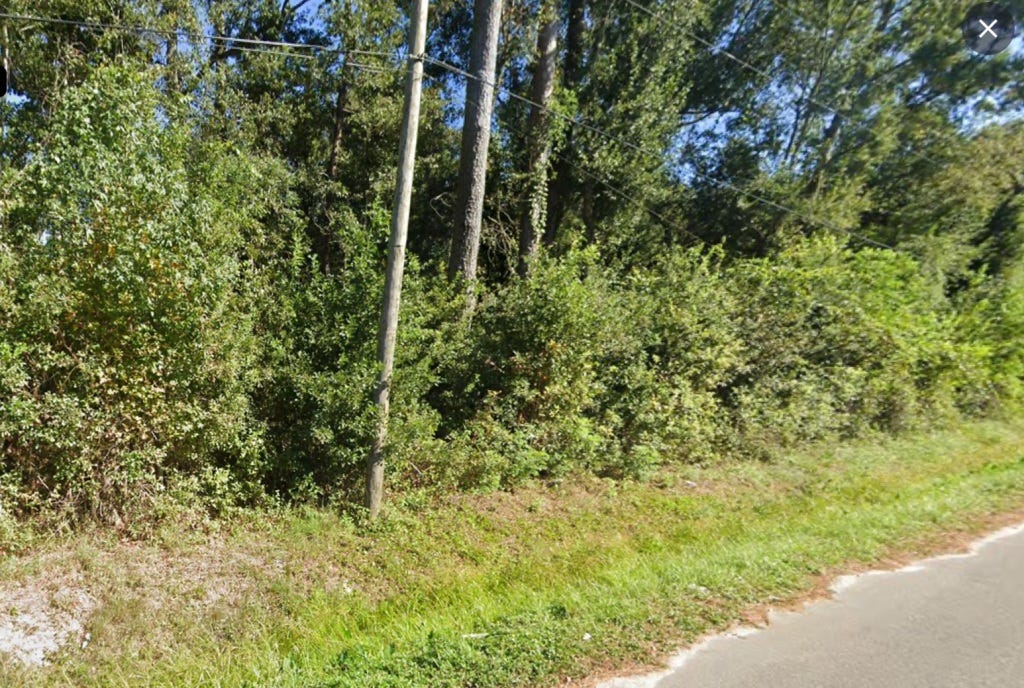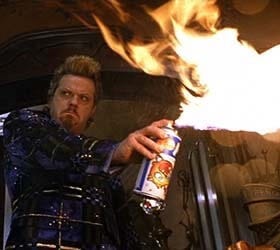Reclamation Part 3
This is the third installment about my multi-section poem responding to Robert Frost’s “The Gift Outright.” Here are links to parts 1 and 2.
Slidell was a suburb when I lived there, a bedroom community. Most adults worked in New Orleans like my parents did. They drove the Twin Spans or Highway 11 across the lake, past the castle in Irish Bayou, the Lake Forest Mall that had the ice skating rink in the middle of it, across the High Rise and into the city. It was an hour or so each way, depending on the traffic and the weather and especially if there was a wreck on one of the bridges.
This was the late 70’s, early 80’s, and as too many Gen Xers will tell you online, it was a time when many of us spent a lot of time alone or with each other. Lots of cultural commentators over the last 30 plus years have said some pretty stupid stuff in my opinion about how things were so much greater when kids had a lot more autonomy and freedom away from their parents and other adults, but I think there’s a reason why a lot of Gen X kids became helicopter parents, and it’s because we knew on some level that even if bad shit didn’t happen to us specifically, that was more a matter of luck than anything else. And most of us knew someone who’d gotten hurt or worse.
And to be clear, sometimes we got hurt because we were alone and making bad decisions and sometimes it was because we were with our peers and we goaded each other into bad decisions and sometimes it was because there was an adult around who had bad intentions and I had experiences with all three of those scenarios more than once and I’d be lying if I said it didn’t affect the way I’ve parented my three children over the last three-plus decades.
That said, I can’t deny that I got a lot out of the adults in our lives making us entertain ourselves. Some of it—like learning just how quickly a flame will travel back up an aerosol spray can stream—was maybe a lesson I didn’t really need to learn when I was 11, but I also learned to gut and scale a catfish at that age and thus was never under any illusions where a big part of my diet came from.
When I use the word suburb, I usually think of subdivisions, of big-box stores and strip malls and people who don’t often know their neighbors and Slidell had plenty of that, but because it was small and on the outer edge of the suburbs right about the time New Orleans stopped growing, it also had those places where the rural was just right there. Where one side of the street was starter homes and the other side was pine woods, where just a block away you might see a gravel drive with a trailer and a clearing with a concrete slab next to it, plumbing and conduit for electrical wiring sticking up out of it where walls would one day be framed up around them.
Some of my Witness friends lived on one of these streets, just 3 blocks away from the strip mall with the A&P grocery on one end and the K&B pharmacy on the other with the first Popeye’s I ever ate at sitting in the parking lot which was across the street from the Winn Dixie strip mall that had the only first-run movie theater in town in the corner and beyond that the book store where I got my copy of E. E. Cummings A Selection of Poems when I was a junior in high school.
But on the other side of the street, it was woods and ponds and a place we called Gar Creek because that was the biggest fish you could hope to catch in it, though catching one was the childhood fishing equivalent of the dog that caught the car because even on the one occasion where we landed one, we couldn’t do anything with it, try as we might.

During the summers, which my sister and me and our friends spent together because while my parents where okay with us being alone at home for a couple to three hours after school, there was no way they’d let us be there all day, we’d roam those woods, or if we had a football that would hold air, we’d throw that around, or maybe hit baseballs in Billy G’s yard or ride bikes but mostly we were in the woods.
And I could paint this nostalgic picture of communing with nature but the truth is that while we did a lot of exploring and fishing, catching and throwing back the same perch a half-dozen times, we also got into mess. There was a newsstand back of the Winn Dixie that would sometimes throw out porn magazines with the covers torn off and we’d hide them in the woods, look at them even though the humidity made the pages swell and stick together after a couple of days. Some kids smoked when they could steal cigarettes. Sometimes we’d fight because we couldn’t really think of anything else to do. Sometimes we’d start a fire in a ditch and spray it with aerosol cans to watch the flames jump.
None of us died from any of this, though we were far enough from adults that if any of us had, say, fallen from the second floor of the abandoned slaughterhouse out past Perch Pond on a road we almost never saw cars on, then yeah, someone might have. We were lucky in a lot of ways.
In “The Gift Outright,” Frost is trying to describe the way that the people he saw as Americans transformed from belonging to England to belonging to this new land, and he’s saying at the start that these colonists saw the land as belonging to them as opposed to them being a part of it. He ignores, of course, all the people who were here already, and the other groups who came here either to take it for themselves or who were brought here against their will. It’s very convenient for him to do so.
In this section of my poem, I’m trying to get at the way a place can lay a claim on a person, especially when you’re a kid getting to know the world around you, its beauties and dangers, but also how very often you don’t recognize those things while you’re in them.
Reclamation Part 3
The woods claimed us, mid-mornings, after breakfast,
The Price is Right, Press Your Luck. We had planned
before. We were her people. She was ours in
pine trees, poison sumac. Shorty claimed
he’d seen a black bear once but no one
believed him. Still, I slipped the knife
my uncle passed down to me one camping
trip in Arkansas onto my belt the next few days.
We’d walk and fish past lunch—it sounds
so much more romantic now—until the heat
and mosquitos reminded us whose land
this really was. Our houses weren’t much
but they were hardened against pest and heat
and Philip’s mom sometimes had cable.
We’d lounge on the floor under the ceiling fans
and complain there was nothing to do.Thanks for reading. For now, new posts are appearing on my personal site first, Another Poem to Love, aka brian-spears.com. These posts will continue to appear on Substack as well, so if you like what you’ve been reading, you’ll still be able to access it here, until this place runs out of money or gets swarmed with Nazis or whatever other hell the internet decides to barf up comes to pass. Or you can follow me on my personal site. Thanks again.


